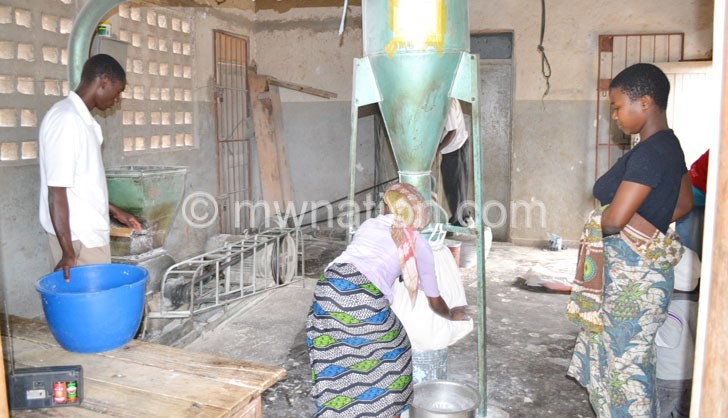China’s K73bn solar mills for value addition
China has set aside $100 million (about K73 billion) for solar mills which will be installed nationwide to help farmers process or value add their agricultural produce.
Solar mills offer farmers an affordable system based on solar energy to facilitate an appropriate cereal and food processing technology for the benefit of smallholder farmers, cooperatives and projects where there is no electricity.

The solar mill equipment guarantees the possibility to obtain flour from different kinds of common dry grains, including maize, wheat, millet and rice.
Speaking in an interview in Lilongwe last week, Chinese Ambassador Shi- Ting Wang said China wants to help Malawi in value addition; hence, establishing solar-powered mills.
“We want Malawi grow its trade with China because this country’s economy is agro-based. Currently, we have a trade and commodity cooperation and establishing the solar mills is one step of helping Malawi grow its economy by boosting trade.
“This year, we hope to purchase more cotton and peanuts because they are on high demand in China,” he said.
Shi-Ting said trade is essential for any country but Malawi is currently not doing well because the manufacturing industry is small.
“Malawi is an agro-based economy, and in the near future, we will help the country in preliminary processes and develop Malawi’s industries. Trade is important and the country needs strong industry to produce goods that can be easily exported,” he said.
Shi-Ting said Malawi should first produce for the Southern Africa Development Community (Sadc) markets before eyeing the more lucrative markets of China, Europe and the Americas.
Apart from setting up the solar mills, Shi-Ting said China will spend about $12 million (K9 billion) to set up five community colleges where youths will be taught various skills.
Farmers Union of Malawi (FUM) president Alfred Kapichira Banda advised the Chinese government to work with independent organisations which already have links with farmers if the mills are to have the desired results.
“That is a good project, but it will make more sense if the Chinese government engages organisations that have links with farmers such as Farmers Union of Malawi. If they engage us, we can tell where we can have a mill and for what crop because we already have the farmers on the ground,” he said.





